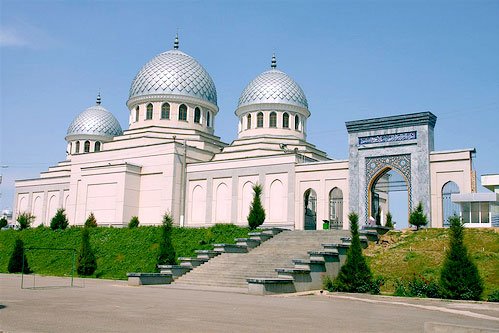
I asked 26 young people: Who was our father Khodja Ahror Valiy? True, only 3 of them answered. The answers were not clear and concise. However, our great nation has left an indelible mark in its socio-political, economic, cultural and spiritual life of the Movarounnahr and Khurasan peoples in the second half of the 15th century. The ruler of the great Sheikh, who was known as the Sheikh Sheikh, spent the past 25-30 years trying to prevent various conflicts by uniting peoples in Central Asia, raising the heads of politicians, did not make two rulers, rulers, princes. Because the people lifted it.
Khodja Akhror Valiy is educated in Samarkand from famous scholars. Having returned to Tashkent in 1434, Khoja Ahrori Valiy was known for his right to invite the righteous, as well as cultivating and trading. The reason for this was that the murids, who had come to Khoja Akhrar Vali for a long time, did not want to be distracted by the living concerns, and they had to deal with their daily needs.
Khodja Akhror Valiy, whatever the work, no matter what happens, with God's blessing, comes from the work, the fruits are blessed, trading is profitable. His knowledge of his work, his sophistication, his entrepreneurship, his dissatisfaction were highly respected by Mawarounnahr and Khurasan. Her reputation increased day by day, and the valorisation potential was a poem in languages. It was the basis of honesty and truth. Khoja Ahrori Valiy took his family by the invitation of Abu Sa'id Mirza in 1450 and moved to Samarkand and lived there until the end of his life.
The great man acting as a sailor in Samarkand has led to serious changes in the socio-political life of the country. Because Khodja Akhror Waliy is the leader of the Nakhshbandi method, but has solved any disputable issues with the consent of civilian peace, trade and commerce, without war and bloodshed. He understood the call of his grandfather, Sheikh Hovandar Tohur, to be the essence of the words purma'no, "Do not be a Muslim, not a sheikh, not be a Sufi, be Muslim", as well as a good understanding of the call to being a simple, clean, honest, the strangers and the poor have always tried to be aware of their families.
According to B. Valihodjaev's book The History of Khodja Akhror, the land of Hoja Akhrar Valy's territory occupies a large area from Tashkent to Amudarya. The area was 58,000 hectares, with about one million livestock, thousands of horses, and countless crops. There are also many handicraft workshops, shops in the region. Urgut, Miyankol, and villages around Samarkand were home to Hodja's homes and gardens. However, Hoja Akhror Valiy, who owns such a wealth of possessions, did not spend his money for himself, but to beautify the country, mitigate the people, pay taxes, build a mosque, a madrasah, a hospital and a hotel in Samarkand. Therefore, the name of this person has preserved the admiration of the greatness of the people, which is proud of this day. This is illustrated by the words of Khodja Akhror Valiy that "we deal with our world (property) not to be generous and cordial, but to avoid the overthrow of the people."
As a striking example of Khodja Ahror Valiy's wishes, it is worthwhile to say that Umar Sheikh Mirza's claim to pay 250000 dinars in the town of Shosh (Tashkent) to pay taxpayers to Khodzha Akhror in return for paying these taxes and bringing more than 70,000 dinars to the citizens. In these and other examples, it seems clear to the public that it is a noble and noble person. In other words, Hoja Akhror, who had programmed the hadeeth, "My poorness is proud," has a poor life, abandoning all the secrets, even though he possesses an inexhaustible wealth that he sought to use for worldly wealth and prosperity. Sufis were neither the wealthiest nor the poor among the Sufis, who did not oppose the wealth of the wealthy. But their main focus is on the heart. They are opposed to the small and the temporary things, and the spoils. There are many examples showing that the people of science, as well as the Sufis, are engaged in commercial activities, and that this is not the pleasure of wealth, but rather that they understand the essence of wealth and wealth and spend it on good deeds. In this sense, possession of it, without showing love for wealth, was another sign of perfection.
Bahodir SHARIPOV,
Khoja Akhror Walî Mosque, Imam-Khatib